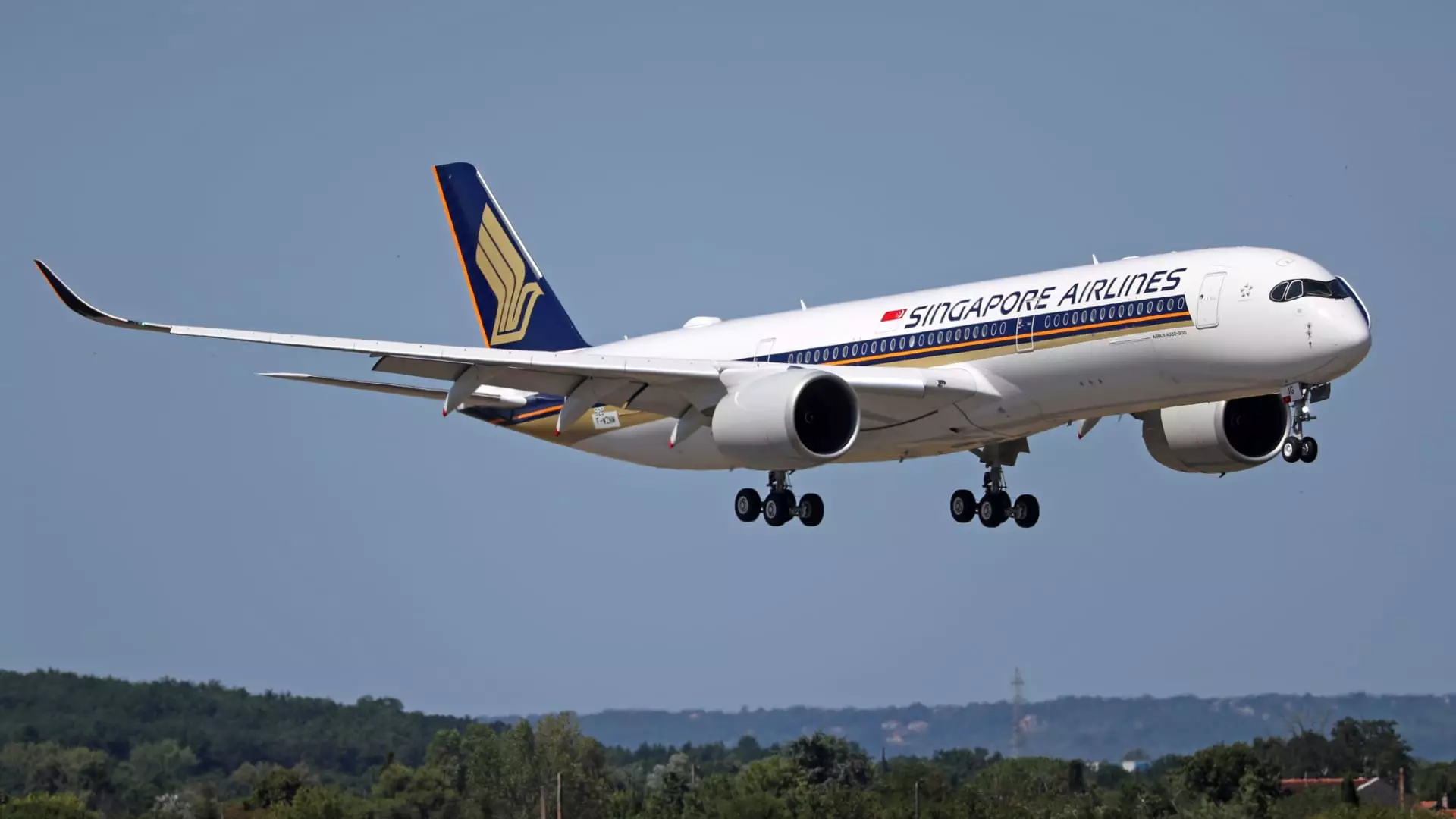In an ambitious initiative, Singapore Airlines is set to revolutionize the luxury travel experience, particularly on its longest routes. The aviation giant will be introducing a four-seat first class option aboard its Airbus A350-900 ultra-long-range aircraft. This strategic decision aims to cater to high-end travelers willing to invest significantly for an exceptional onboard experience, particularly on lengthy flights that can span over 17 hours. The aircraft serves key routes, including the flagship service connecting New York and Singapore, asserting itself as a leader in long-haul aviation.
The introduction of first-class seating is not merely an aesthetic enhancement; it epitomizes a broader trend among airlines focusing on attracting affluent clientele. By planning this upgrade, Singapore Airlines is also signaling its commitment to luxury, comfort, and exclusivity—qualities that discerning travelers have come to expect. Such moves reflect an industry-wide pivot towards offering enhanced privacy, a factor increasingly highlighted by carriers.
Beyond first-class seating, Singapore Airlines is embarking on an extensive overhaul of the business class environment as well. Upcoming modifications will include introducing advanced business-class seats equipped with sliding doors, a feature gaining traction among international airlines. The allure of privacy during long flights is paramount, and many carriers are recognizing this need as a crucial selling point. The CEO, Goh Choon Phong, has emphasized that these changes will “push the boundaries of comfort, luxury, and modernity,” promising an elevated journey for passengers.
In addition to the first-class seats, Singapore Airlines will modernize its remaining long-haul Airbus fleets. Out of the planned upgrades for 34 Airbus A350 models, the cabin configurations post-renovation will align with customer expectations, featuring a balanced mix of business, premium economy, and economy seats. The changes will involve slight adjustments in seating arrangements, ensuring that the airline can still accommodate a diverse group of travelers while reaffirming its focus on premium services.
The investment required for such extensive retrofitting is substantial, with Singapore Airlines projecting costs in the vicinity of S$1.1 billion (approximately US$835 million). This commitment underscores the airline industry’s shift toward satisfying luxury-seeking consumers. Unlike many U.S. carriers, which are phasing out first-class offerings in favor of expanded business-class sections, Singapore Airlines is doubling down on the premium market.
This departure can potentially set Singapore Airlines apart in a landscape where differentiation is increasingly vital. Fellow global players, such as JetBlue Airways and Lufthansa, are also pursuing similar upgrades, but Singapore Airlines’ enhancements promise to carve out a unique niche in the market. JetBlue, for instance, has adopted features such as suites with sliding doors for their transatlantic journeys, while Lufthansa is launching new first-class suites aimed at luxury travelers.
Challenges and Opportunities in the Aviation Landscape
While the prospects of these upgrades are promising, they are not without challenges. Airlines globally are grappling with supply chain issues that have slowed retrofit timelines, complicating the response to the burgeoning demand for premium seating options following the pandemic. Airlines must find innovative solutions to navigate these obstacles while remaining competitive.
Nevertheless, the long-term outward expression of luxury travel may pivot the entire landscape. With consumer expectations evolving, airlines that embrace luxury-focused offerings will likely find themselves better positioned to capture the lucrative premium travel segment.
As Singapore Airlines moves towards a comprehensive enhancement of its first and business-class offerings, it exemplifies the evolving nature of air travel. The emerging focus on exclusive, luxurious experiences reflects a sophisticated understanding of consumer demand. Furthermore, the competitive landscape will influence how airlines allocate their resources, particularly in an era where comfort and privacy are paramount. Singapore Airlines’ bold plans may not only fortify its stand in the luxury air travel space but also reshape the standards across global aviation.


Leave a Reply